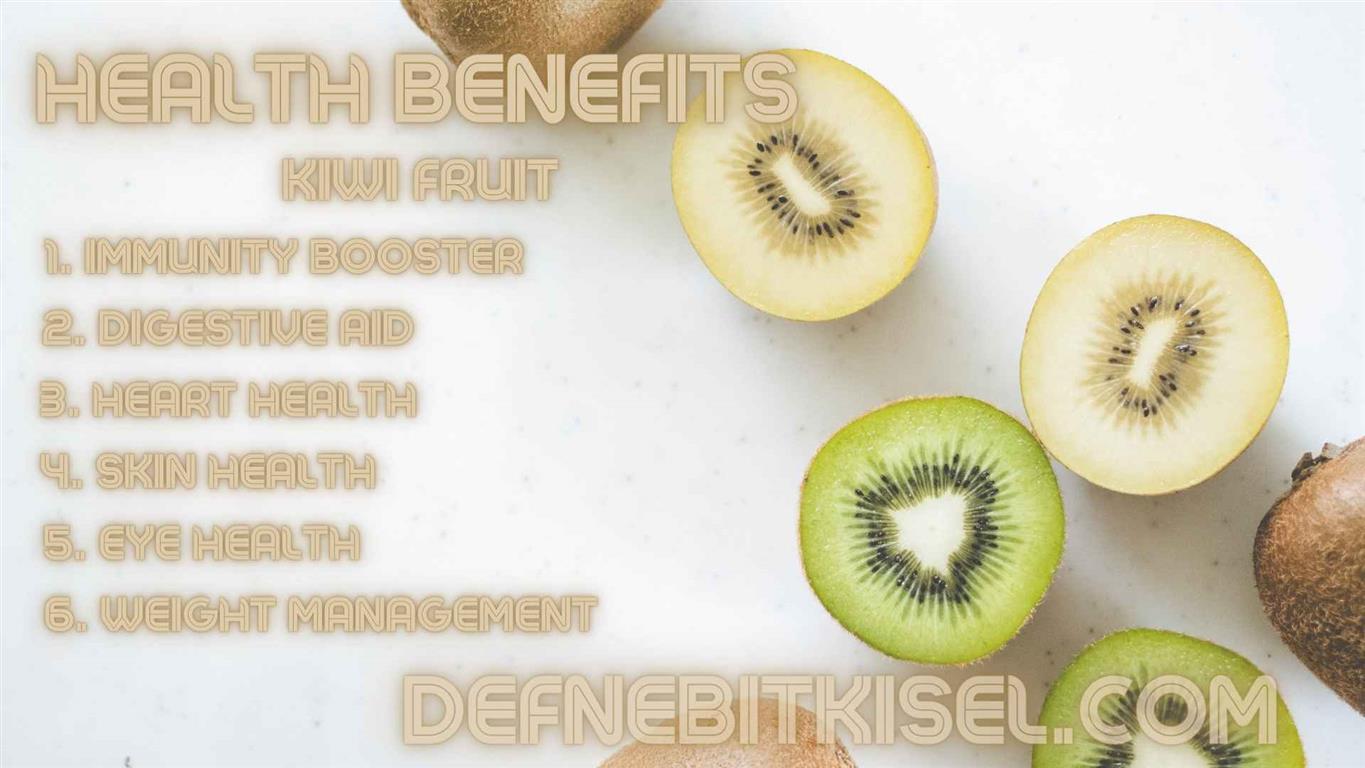Introduction Kiwi Fruit
Originating from China and popularized in New Zealand, the kiwi has become a global favorite. Yet, its allure goes beyond just taste and aesthetics. Kiwi fruit is a veritable powerhouse of nutrients, offering an array of health benefits. This article delves into the various aspects of kiwi, from its history to its nutritional profile, health benefits, and culinary applications.
History and Origin
But The kiwi, originally known as the ‘Chinese Gooseberry,’ hails from the mountainous regions of China. The fruit was renamed and popularized by New Zealanders in the 20th century, and it is under this new identity that the kiwi has garnered global fame. Now, it’s cultivated in various parts of the world, including Italy, Chile, Greece, and France.
Physical Characteristics
The kiwi is a small, oval fruit, covered in a fuzzy, brown skin. When sliced open, its flesh reveals a vibrant green or yellow color, interspersed with tiny, edible black seeds. The texture is smooth, almost creamy, and the taste is a delightful blend of sweetness and tartness, with a hint of citrus.
Nutritional Profile
Kiwi is an incredibly nutritious fruit. It’s a rich source of Vitamin C, even outperforming oranges in this regard. It also contains other essential vitamins like Vitamin K, Vitamin E, and various B-complex vitamins. Minerals such as potassium, magnesium, and calcium are also present. Moreover, kiwi is packed with antioxidants and dietary fiber, making it an all-around superfood.
Health Benefits
- Immunity Booster: The high Vitamin C content helps boost the immune system,But making it more effective at warding off diseases.
- Digestive Aid: Kiwi contains an enzyme called actinidin, which aids in the digestion of proteins, thereby promoting a healthy digestive system.
- Heart Health: The potassium and antioxidant content help regulate blood pressure and reduce cholesterol, contributing to a healthier heart.
- Skin Health: Rich in antioxidants and Vitamins C and E, kiwi promotes collagen production and fights off free radicals, leading to healthier skin.
- Eye Health: The presence of lutein and zeaxanthin make kiwi beneficial for eye health, reducing the risk of age-related macular degeneration.
- Weight Management: Being low in calories and high in nutrients,while kiwi is an excellent choice for those looking to manage their weight effectively.
Culinary Uses
But The versatility of kiwi makes it a popular ingredient in various culinary applications. It’s often consumed fresh but can also be incorporated into smoothies, desserts, salads, and salsas.
Recipes
- Kiwi Smoothie: Blend kiwi with yogurt, banana, and a splash of orange juice for a nutritious and delicious smoothie.
- Kiwi Salad: Toss chunks of kiwi, strawberries, and grapes with a dash of honey and mint leaves for a refreshing fruit salad.
- Kiwi Sorbet: Puree kiwi with sugar and freeze it to make a delightful, home-made sorbet.
- Kiwi Salsa: Combine diced kiwi, tomatoes, onions, and cilantro,while seasoned with lime juice and salt, to create a unique salsa that pairs well with grilled meats.
Growing Kiwi Fruit
Growing kiwi requires a temperate climate and well-drained soil. The plant is usually grown on trellises and needs to be pruned regularly for optimal fruit production. It’s a dioecious plant, meaning you’ll need both male and female plants for pollination and fruiting.
Conclusion Kiwi Fruit
The kiwi fruit is not just a feast for the eyes and palate; it’s also a cornucopia of health benefits. Rich in essential nutrients and versatile in the kitchen, it’s a fruit that should feature more prominently in our diets. So the next time you’re at the supermarket, don’t just walk past the kiwi section—grab a few, and relish the many benefits this amazing fruit has to offer.







